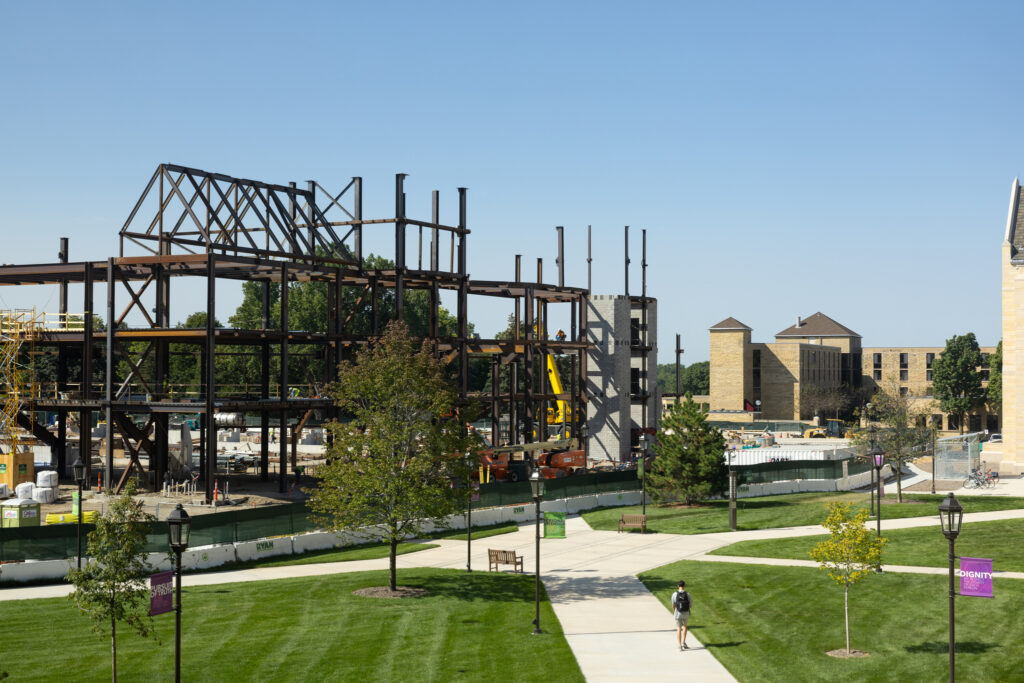Chip Small, associate professor of biology in the College of Arts and Sciences at the University of St. Thomas, recently spoke with WCCO Radio about new research highlighting the benefits of using compost in gardens and the importance of optimizing its usage to reduce the risk of excess runoff.

From the interview:
Host: What about compost being used to fertilize urban gardens? What are some of the things people need to know about it, and may not even realize, about using compost to fertilize urban gardens? ...
Small: We just finished a seven-year experiment in our research garden at St. Thomas, where we had different treatments that got different types of compost and different amounts of compost. It’s really a big accounting project, so you know how much of that phosphorus goes into the crops and gets recovered, how much of it builds up in the soil, or how much of it escapes through runoff. The good news from that is, if you’re paying attention to the soil phosphorus level and if you’re applying compost based on what the soil needs, then you can do this really well and kind of maximize the benefit. ...
Host: Then you think about all the rain you mentioned getting into the water supply, things like that. All the rain we got from spraying, and parts of the summer, had an impact as well. ...
Small: Right, you know, and one of the advantages of doing this experiment over seven different years is we had some really dry summers, we had wet summers, and some big rain events. You know, one of the benefits of compost is it keeps water in the soil, acting like a sponge that can soak up that rain. And you know, that’s another benefit of urban agriculture. But when you have really heavy rains, it does leach out those nutrients as well.







